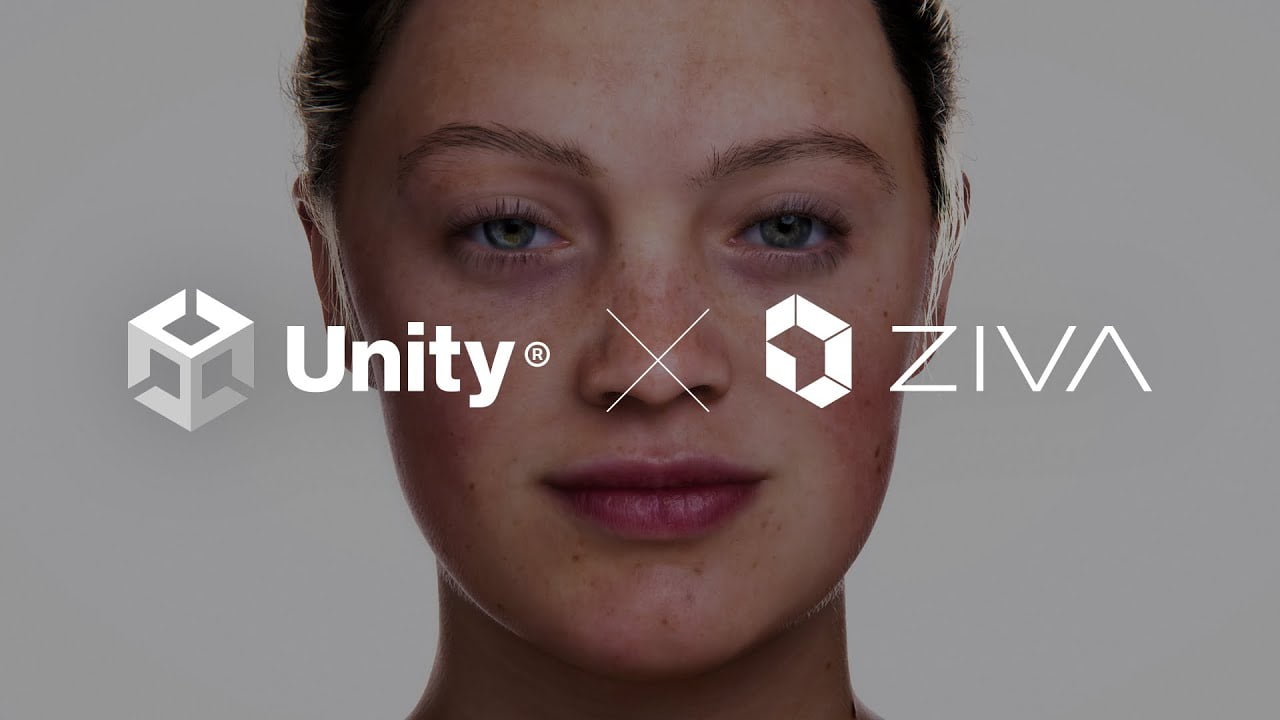AI Graphics: Unity buys digital human startup

Engine manufacturer Unity buys tech company Ziva Dynamics, which specializes in the realistic representation of digital people.
Founded in 2015, Ziva Dynamics' graphics tech is in games like "Senua's Saga: Hellblade II" and "Marvel's Spider-Man: Miles Morales", which are known for, among other things, realistic animations and, in the case of Hellblade, expressive, realistic-looking faces.
Ziva Dynamics also supported films such as "Godzilla vs Kong" and "Jumanji: The Next Level" with 3D technology and created a photorealistic avatar for Star Trek star William Shatner.
Digital people to become more realistic
Ziva Dynamics relies on machine learning for realistic animations of digital humans. According to Unity, the character "Emma" (see video) was generated with the help of an AI model trained with more than 30 terabytes of 4D data for 72000 different facial poses. Ziva says it uses a "multi-layered, classical machine learning model."
The technology behind it, ZRT Trainer, can be used "for anything that deforms" - realistic and stylized, according to Unity. In addition to people, the company cites creatures and clothing as examples. Figures or objects animated with Ziva should run on current consumer hardware.
Unity promises simple production processes
The two companies promise that the software can save "weeks of artistic work."
"With the acquisition of Ziva, Unity aims to further democratize Ziva's world-class tools to enable artists, regardless of skill level, to easily and quickly create digital characters like never before," Unity writes.
Unity also plans to work with Ziva to make Weta's tools available in real-time 3D via machine learning in the cloud. Unity purchased renowned special effects studio Weta Digital in November 2021.
"Together, we plan to make the creation of believable digital characters accessible to a wide range of platforms and artists at scale."
With the acquisition of Ziva, Unity is also expected to respond to Engine competitor Unreal's digital human push. The company launched its Metahuman creator in Spring 2021, which allows artists and developers to generate and animate realistic people with comparative ease.
AI News Without the Hype – Curated by Humans
As a THE DECODER subscriber, you get ad-free reading, our weekly AI newsletter, the exclusive "AI Radar" Frontier Report 6× per year, access to comments, and our complete archive.
Subscribe nowAI news without the hype
Curated by humans.
- Over 20 percent launch discount.
- Read without distractions – no Google ads.
- Access to comments and community discussions.
- Weekly AI newsletter.
- 6 times a year: “AI Radar” – deep dives on key AI topics.
- Up to 25 % off on KI Pro online events.
- Access to our full ten-year archive.
- Get the latest AI news from The Decoder.